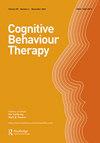Emotion regulation training for adolescents with ADHD: a multiple-baseline single-case experimental study
IF 3.2
2区 心理学
Q1 PSYCHOLOGY, CLINICAL
引用次数: 0
Abstract
Adolescents with attention-deficit/hyperactivity disorder (ADHD) often experience difficulties with emotion regulation, but treatment alternatives remain limited. This study investigates the feasibility and effectiveness of a newly developed psychological intervention aiming to increase emotion regulation skills in adolescent ADHD. A single-case experimental design with multiple baselines across participants was employed. Seven girls aged 13-17 years with ADHD completed the intervention. Outcomes of feasibility included attrition and retention rates, therapist-rated adherence, homework completion and engagement with the intervention material, as well as self- and caregiver ratings of client satisfaction and adverse outcomes. Primary outcomes of emotion dysregulation included weekly self- and caregiver ratings of the Difficulties in Emotion Regulation Scale Short Form during baseline, the intervention and a follow-up period of 2 weeks. Data was analyzed through descriptive statistics, visual inspection and effect size (Tau). The intervention was deemed feasible, although homework completion and engagement between sessions proved challenging. Six adolescents and caregivers reported lower emotion dysregulation after the intervention. However, six adolescent and four caregiver ratings demonstrated improvement before the intervention during baseline, complicating determination of intervention effects. Nevertheless, four participants showed a visual and/or statistical improvement from the intervention. Sensitivity analyses suggest that the intervention may have positive effects on emotional clarity.情绪调节训练对青少年多动症:一项多基线单例实验研究
患有注意力缺陷/多动障碍(ADHD)的青少年通常在情绪调节方面遇到困难,但治疗方案仍然有限。本研究探讨了一种旨在提高青少年ADHD情绪调节技能的新开发的心理干预的可行性和有效性。采用单例实验设计,参与者之间有多个基线。7名13-17岁患有多动症的女孩完成了干预。可行性的结果包括流失率和保留率、治疗师评定的依从性、家庭作业完成情况和对干预材料的参与情况,以及自我和护理者对客户满意度和不良结果的评分。情绪失调的主要结果包括在基线、干预和2周的随访期间每周对情绪调节困难量表的自我和照顾者评分。通过描述性统计、目视检验和效应量(Tau)对数据进行分析。干预被认为是可行的,尽管课后作业的完成和参与被证明是具有挑战性的。六名青少年和照顾者在干预后报告情绪失调程度较低。然而,六名青少年和四名照顾者在基线干预前表现出改善,使干预效果的确定复杂化。然而,四名参与者在视觉和/或统计上显示出干预后的改善。敏感性分析表明,干预可能对情绪清晰度有积极影响。
本文章由计算机程序翻译,如有差异,请以英文原文为准。
求助全文
约1分钟内获得全文
求助全文
来源期刊

Cognitive Behaviour Therapy
PSYCHOLOGY, CLINICAL-
CiteScore
9.20
自引率
0.00%
发文量
25
期刊介绍:
Cognitive Behaviour Therapy is a peer reviewed, multidisciplinary journal devoted to the application of behavioural and cognitive sciences to clinical psychology and psychotherapy. The journal publishes state-of-the-art scientific articles within: - clinical and health psychology - psychopathology - behavioural medicine - assessment - treatment - theoretical issues pertinent to behavioural, cognitive and combined cognitive behavioural therapies With the number of high quality contributions increasing, the journal has been able to maintain a rapid publication schedule, providing readers with the latest research in the field.
 求助内容:
求助内容: 应助结果提醒方式:
应助结果提醒方式:


